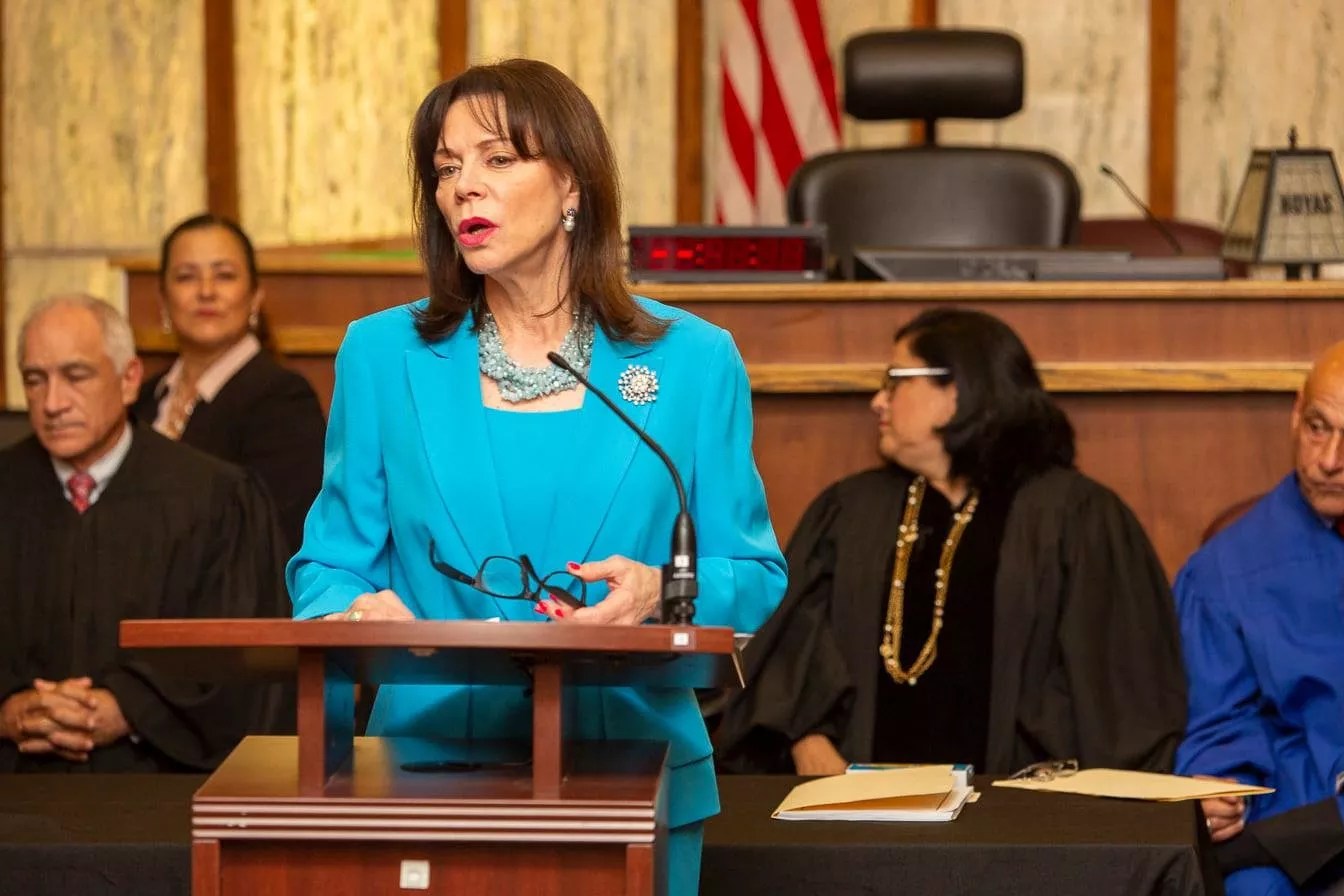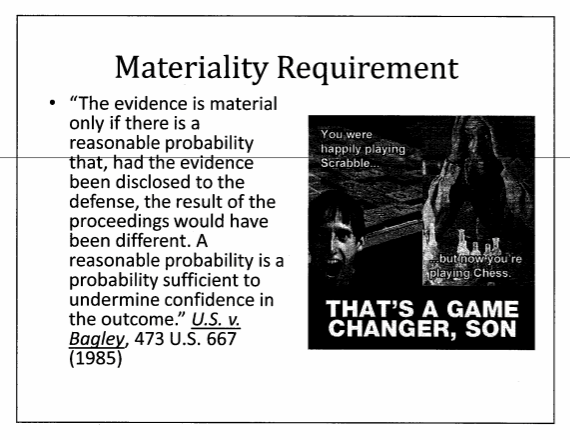
Photo via Miami-Dade County State Attorney’s Office

Audio By Carbonatix
Defense lawyers and justice-reform advocates have known for years that cops routinely get away with lying in court and on official documents without punishment. Cops, in fact, lie in sworn statements so often that critics even created a phrase – “testilying” – to describe the problem.
But this morning, the American public got what is likely its best glimpse at the severity of the issue. USA Today released a massive investigative report showing that thousands of cops have avoided punishment for lying on documents that have gotten people arrested and, in some cases, sent to prison. The newspaper also reported that prosecutors’ offices are often skirting Supreme Court rules by failing to keep track of lying cops.
Among other revelations, USA Today obtained internal documents from Miami-Dade State Attorney Katherine Fernandez Rundle’s office – namely, a PowerPoint slideshow for new prosecutors that seemingly instructs them on how to avoid disclosing that a cop in a particular criminal case might have a history of failing to tell the truth. The four-page slideshow explains to prosecutors exactly when they do and don’t need to disclose if a cop is a documented liar.

Miami-Dade State Attorney’s Office
In 1963, the U.S. Supreme Court in Brady v. Maryland ruled that prosecutors must disclose any evidence they obtain that might help the accused at trial – but the PowerPoint obtained by USA Today appears to show Rundle’s office teaching new hires how to skirt those reporting rules.
“Mere speculation by defense that the information MAY be exculpatory is not enough to trigger state’s obligation to disclose,” one of the slides reads.
Most worrying, another slide includes what is essentially a meme telling prosecutors: “You were happily playing scrabble, but now you’re playing chess. That’s a game changer, son.”
Speaking to USA Today, Rundle’s spokesperson, Ed Griffith, denied the PowerPoint slideshow instructs staffers to avoid disclosing when cases have been filed by lying cops. He also offered what amounts to almost an apology for the meme:
Ed Griffith, a spokesman for Katherine Fernandez Rundle, the elected state attorney in Miami-Dade County, contended the presentation does not provide instructions on avoiding disclosure of Brady material and said the chess game comparison in the slide was an attempt to “add a level of attention-getting levity to a very serious subject.”
“The problem with levity is that it does not always accomplish its intended goal,” he said. “This appears to be one of those situations.”
In a follow-up email to New Times, Griffith said the graphic is no longer in use.
“The information supplied in the presentation to the misdemeanor court attorneys was intended to describe what Brady obligations are, what violations of Brady obligations can entail, and to give insight into what the courts have excluded as Brady obligations,” he wrote. “The case information, the citations to the relevant Federal and Florida case law, was intended to provide a foundational legal basis for a fundamental legal understanding of the issues involved and relevant legal limitations that young prosecutors may see arise in courtroom situations. However, the mantra of the Miami-Dade State Attorney’s Office when dealing with Brady obligations is now, and has been, ‘When in doubt… Give it out!!’ (as was indicated boldly in the final slide of the presentation and which seems to have been overlooked).”
Though the USA Today investigation doesn’t list any cases in Miami-Dade County tainted by lying cops, the newspaper reported that, since 1988, data from the National Registry of Exonerations shows that 987 people have been convicted and then exonerated due to either prosecutorial misconduct, police perjury, or a combination of the two. Those 987 spent an average of 12 years in prison per person.
But the documents also don’t paint Rundle’s office in a particularly attractive light. She’s held office since 1993 and in that time has not once charged an on-duty police officer for fatally shooting someone. Instead, she’s been accused of being much too close to police officers who take cases to her office. In January, for example, New Times reported on the case of Deandre Charles – an underage teen whom Rundle’s office accused of first-degree murder despite the fact that prosecutors and Miami-Dade Police allegedly held evidence the entire time that showed the boy could not have killed the prominent New York City rabbi Joseph Raksin.
Rundle has cruised to victory virtually unopposed in each of her elections since 1993. But she might soon face the strongest opponent of her career in 2020: veteran American Civil Liberties Union lawyer Melba Pearson, who is rumored to be considering a run for top prosecutor. In response, Rundle this month quietly created a #KeepKathy2020 campaign online and across multiple social media platforms.